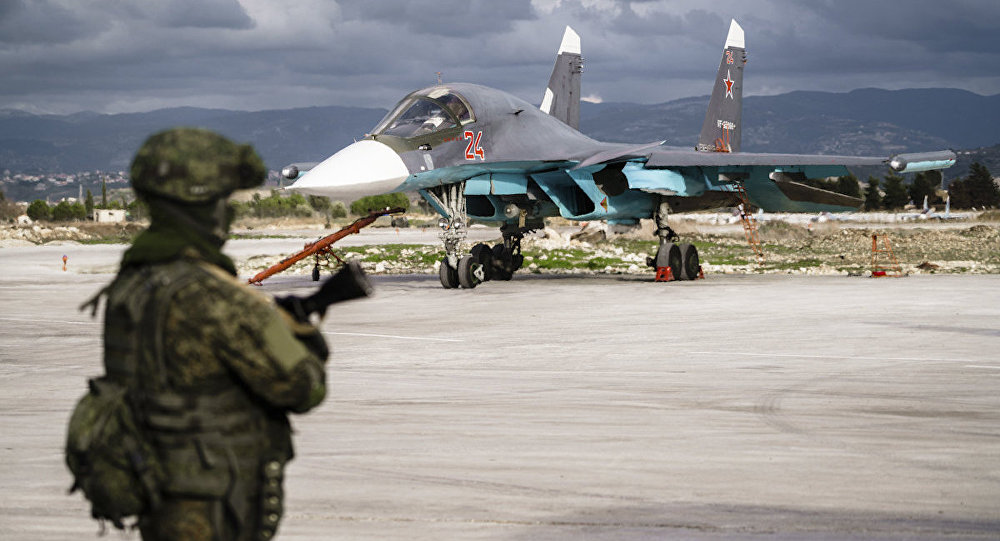
RUSSIA IN THE MIDDLE EAST
Top advisors attend conference on Russia’s Middle East policy

Along with a top Syrian presidential advisor, the foreign ministers of Russia and Iran will headline a conference on Russia’s role in the Middle East today.
Russia has rejected numerous UN proposals on Syria but has made unilateral progress. Today’s meetings stand as a step beyond last month’s Sochi conference, during which Russia sought to negotiate de-escalation in Syria. Russia, partnered with Iran, holds the upper hand in Syria, especially with President Bashar al-Assad’s recent victories.
With the wide scope of today’s conference, Russia is in position to capitalise on its success in Syria and to address a plethora of Middle Eastern issues, including ongoing conflicts in Yemen and Libya. With Iran’s help, Russia could seek to bring peace in many longstanding conflicts.
Expect Russia to assert its commitment to aiding distressed Arabs, using Syria an example of past success. Russia is poised to be a dominant geopolitical power in the Middle East’s future, as alliances with other Arab states could yield Russian economic and political strength in the region. If Russia can fix issues that the UN has not, Moscow stands to gain with Russia emerging as a dominant force.
HUNGARIAN-EU RELATIONS
Hungarian and Bulgarian leaders discuss European Union tensions

Hungary’s hardman PM Viktor Orban will discuss his country’s tense relationship with the EU when he meets Bulgarian counterpart Bokyo Borisov today.
Over the past five years, Mr Orban’s reliance on nationalist, right-leaning rhetoric has become increasingly problematic for the European Commission, with tensions continuing since the beginning of Bulgaria’s EU presidency last month.
Most recently, Orban decried EU intervention in Poland’s domestic affairs, drawing the ire of Chancellor Merkel among others. Concerns over Polish political freedoms prompted an EU legal response, which Hungary threatened to veto if passed.
Also opposing open-border migration, Hungary is an obstacle to Bulgaria’s EU governance. Hungary refuses to accept migrant quotas, going so far as to build a border fence. Despite pressure from Brussels, Orban remains committed to protecting his country from so-called “moral imperialism”.
Borisov will try to diffuse tensions today, but elections on April 8 will decide Hungary’s EU relations. Orban’s Fidesz Party is polling with a strong majority, campaigning on anti-EU rhetoric. An Orban victory has the potential to shake Hungary’s EU membership, right when the bloc is struggling for unity.
EU MONETARY POLICY
European Central Bank to get new leadership

Today, EU finance ministers will meet to mull over a vice president of the ECB in what are the opening manoeuvres for the bigger decision for EU leaders on a replacement for outgoing president, Mario Draghi. All votes are by qualified majority.
A win for the favourite, Spaniard Luis de Guindos, is a strong indication that a Northern European will get the top job.
Given that a German has never been president, the current head of Germany’s Central bank, Jans Weidmann, is the leading contender. Weidmann has long criticised Draghi’s policies of buying government debt bonds as it induces Eurozone governments to run up debt rather than belt-tightening and structural reforms.
The main challenger is Frenchman, Francois Villeroy de Galhau, head of France’s central bank and a supporter of Draghi’s monetary stimulus policies.
However, Weidmann’s win is not assured. Southern Europeans bristle at the conventionalist German thinking as a threat to their recoveries and may choose someone like de Galhau as the anti-German candidate. Expect a lot of horse-trading to go on before the final decision is reached.

